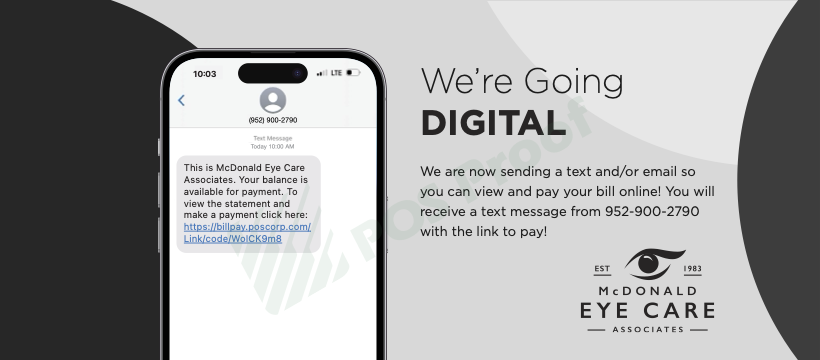When it comes to eye health, there’s no shortage of advice—some helpful, and some… not so much. You’ve probably heard things like “Don’t sit too close to the TV” or “Eat more carrots for better vision.” But how many of these statements are actually true?
In this blog, we’re busting some of the most common myths about vision and offering evidence-based facts to help you take better care of your eyes. Whether you’re a parent, a student, or just someone interested in maintaining healthy vision, it’s time to separate fact from fiction.
Common Vision Myths—Debunked
Myth #1: Sitting Too Close to the TV Will Ruin Your Eyes
The Truth: Sitting close to the television may cause temporary eye strain or fatigue, but it does not cause permanent damage to your eyesight.
This myth likely started when TVs first entered households, and parents were concerned about children’s habits. In reality, children tend to sit closer to screens because they can focus at a shorter distance better than adults can. If your child is always sitting very close to the screen, it may be worth checking their vision with an eye care provider, but the habit alone won’t “ruin” their eyesight.
Myth #2: Reading in the Dark Can Damage Your Eyes
The Truth: Reading in low light can make your eyes work harder and cause temporary discomfort or strain, but it does not lead to permanent damage.
That tired or burning sensation you might feel after reading in dim light is due to your eye muscles working overtime. The good news is, this strain is temporary and can be avoided by reading in well-lit environments.
Myth #3: Eating Carrots Will Improve Your Vision
The Truth: Carrots are rich in vitamin A, which is essential for eye health—but eating them in excess won’t give you super-vision or cure vision problems.
This myth became popular during World War II propaganda to explain improved night vision among pilots (thanks to radar technology). While vitamin A is important, especially for night vision, a well-balanced diet including leafy greens, citrus fruits, and omega-3 fatty acids is better for long-term eye health.
Myth #4: Wearing Glasses or Contacts Makes Your Eyes Worse Over Time
The Truth: Glasses and contact lenses do not weaken your eyes or make your vision worse.
Your prescription may change over time due to natural aging or changes in your eyes, but this has nothing to do with wearing corrective lenses. In fact, not wearing your prescription glasses can lead to more strain and discomfort.
Myth #5: You Don’t Need an Eye Exam Unless You Have Symptoms
The Truth: Many eye conditions, such as glaucoma or macular degeneration, develop without noticeable symptoms in their early stages.
Regular comprehensive eye exams are essential—even if your vision seems fine. Early detection is key to preventing long-term damage and maintaining eye health.
Q&A: Common Questions About Vision and Eye Health
Q: How often should I get my eyes checked?
A: It depends on your age and risk factors. Generally:
- Children: First eye exam at 6 months, then at age 3, and before starting school.
- Adults (18–60): Every 1–2 years.
- Seniors (60+): Annually. People with diabetes or a family history of eye disease may need more frequent exams.
Q: Can staring at screens all day harm my vision?
A: While screens don’t permanently damage your eyes, they can cause digital eye strain, leading to symptoms like dryness, fatigue, and blurred vision. The 20-20-20 rule can help: every 20 minutes, look at something 20 feet away for 20 seconds.
Q: Do blue light glasses really work?
A: Blue light-blocking glasses can reduce eye strain and improve sleep quality, especially for those using screens late at night. However, they don’t prevent vision loss or eye disease.
Q: Is vision loss inevitable with age?
A: Some age-related changes are normal, like presbyopia (difficulty focusing on close objects), but many serious conditions can be managed or slowed with early intervention and proper care.
Q: Can eye exercises improve my vision?
A: Eye exercises may help reduce eye strain and improve focus, especially in cases of convergence insufficiency, but they won’t cure refractive errors like nearsightedness or astigmatism.
Final Thoughts
Misinformation about eye health can lead people to overlook the importance of regular eye exams and proper care. By understanding the truth behind these common myths, you’re already taking a big step toward protecting your vision.
At INSERT COMPANY NAME, we’re here to support your eye health with expert care, up-to-date technology, and personalized recommendations. Whether you need a routine check-up, a new prescription, or treatment for an eye condition, our team is ready to help.
Schedule Your Eye Exam Today
Don’t let myths guide your vision care. Contact McDonald Eye Care Associates
to schedule an appointment and get professional insight into your eye health.
Your eyes deserve the facts—let’s take care of them together.


